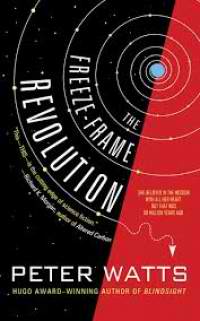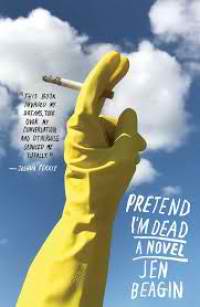Death Notice by Zhou Haohui
 Wednesday, June 6, 2018 at 8:38AM
Wednesday, June 6, 2018 at 8:38AM 
First published in China in 2014; published in translation by Doubleday on June 5, 2018
The Chengdu police have formed a task force to investigate the murder of police sergeant Zheng Haoming. Eighteen years earlier, a task force investigated the murders of the vice commissioner of Chengdu’s criminal police and two police academy students. The killer prepared “death notices” announcing those executions in advance. Given the Chinese government’s culture of secrecy, the murders were never made public, nor were they solved. The unsolved murders are relevant because a death notice was also prepared for Zheng before his murder. The notices identify the executioner as Eumenides, one of the Furies of Greek mythology.
Ironically, Zheng had been a member of the task force examining the original murders eighteen years earlier. His journal reveals that he began to reinvestigate the murders. Soon after Zheng is killed, Eumenides apparently accomplishes several more murders under the collective noses of the Chengdu police.
The novel follows several officers who work to uncover the identity of Eumenides. The story primarily follows a police psychologist named Mu Jainyun, who uncovers a potential link between the original murders and a drug bust that occurred a month earlier. Meanwhile, the other officers are either accusing each other of keeping secrets or doing not much of anything.
Death Notice isn’t the kind of whodunit that invites the reader to piece together clues and catch the killer. It’s more of a Chinese police procedural. The political and bureaucratic concerns that impede a proper investigation are interesting but underplayed, perhaps to avoid censorship of a novel that might be seen as exposing the inefficiency or corruption of Chinese policing. It is a common theme in crime fiction that escaping justice is a privilege of wealth, and that theme is advanced in Death Notice, but in a way that seems watered down compared to western crime novels.
The novel’s big reveal comes out of the blue, with an explanation tacked on in an epilogue. Death Notice is the first book in a trilogy, however, so don’t expect the story to be fully resolved by the end of the novel.
Characters tend to be underdeveloped stereotypes. They might gain more weight later in the series. The prose is often trite. That might be the fault of the translator, or it might be that what has become trite in western crime fiction is considered fresh in China.
Tired themes from horror novels (a man burned beyond recognition wanders through the novel) mix with familiar themes of justice (unpunished crimes must be avenged), although whether people (horrific or not) who carry out acts of vengeance outside the law are actually dispensing justice is questionable. Perhaps later novels in the trilogy will explore that question in greater depth; this one ducks the issue, and did too little to persuade me to continue with the remaining novels in the trilogy. Death Notice is interesting, primarily for being set in Chengdu, but it is far from compelling.
RECOMMENDED WITH RESERVATIONS
 TChris |
TChris |  Post a Comment |
Post a Comment |  China,
China,  Zhou Haohui in
Zhou Haohui in  Thriller
Thriller 


